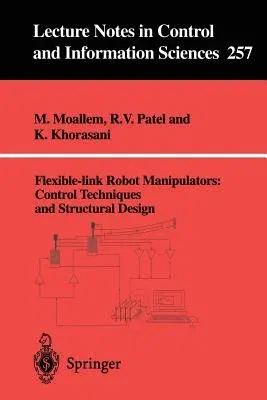M Moallem
(Author)Flexible-Link Robot Manipulators: Control Techniques and Structural Design (Edition.)Paperback - Edition., 22 September 2000

Qty
1
Turbo
Ships in 2 - 3 days
In Stock
Free Delivery
Cash on Delivery
15 Days
Free Returns
Secure Checkout
Part of Series
Lecture Notes in Control and Information Sciences
Part of Series
Computer Communications and Networks
Print Length
161 pages
Language
English
Publisher
Springer
Date Published
22 Sep 2000
ISBN-10
1852333332
ISBN-13
9781852333331
Description
Product Details
Book Edition:
Edition.
Book Format:
Paperback
Country of Origin:
US
Date Published:
22 September 2000
Dimensions:
22.96 x
15.54 x
1.47 cm
ISBN-10:
1852333332
ISBN-13:
9781852333331
Language:
English
Location:
London
Pages:
161
Publisher:
Weight:
267.62 gm

